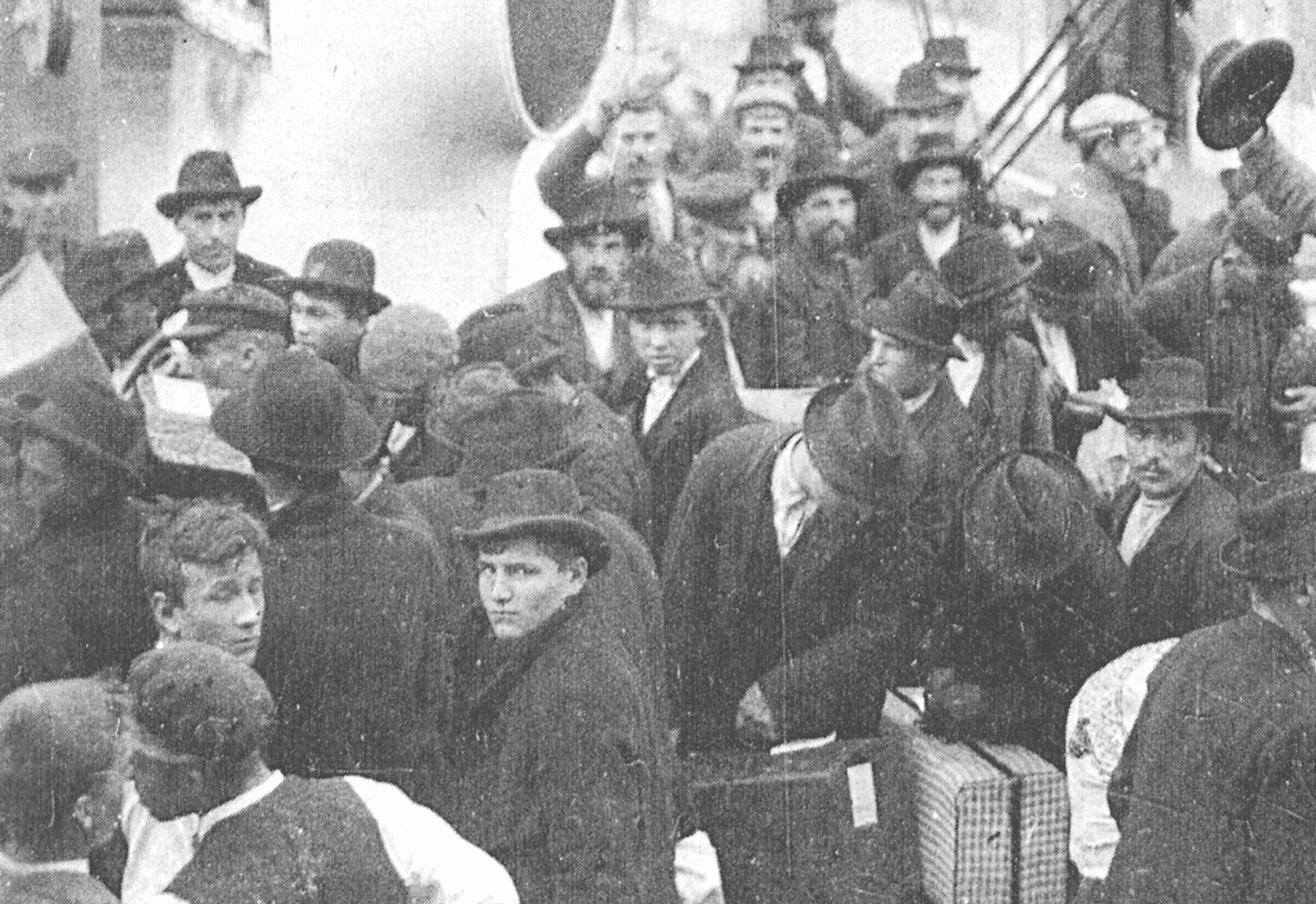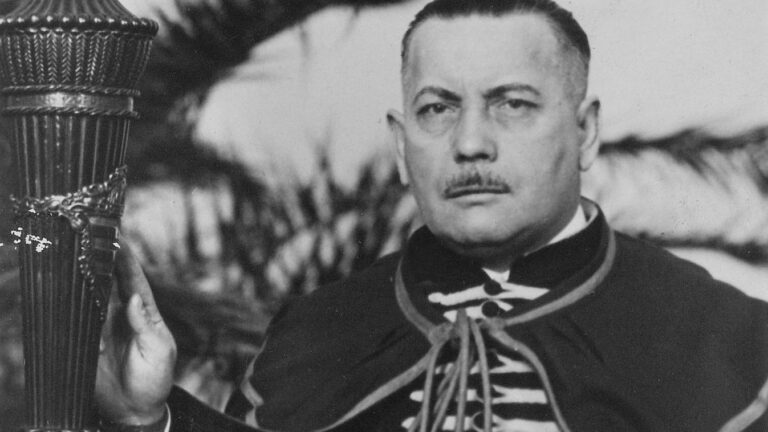As failed and successful attempts at far-left revolutions swept across Europe between 1917 and 1921, the Hungarian right-wing interwar system took the threat seriously. Regent Miklós Horthy, for instance, greeted an American visitor with tales of a possible Communist coup and alleged averted bombings in 1920. However, the ‘Red Defence Reports’, regularly compiled by the Hungarian military intelligence, had so few threats to report that already in 1921, they focused instead on the activities of Estonian and Lithuanian communists.[i] A 1922 secret police report on left-wing émigrés admitted that the notorious ‘red emigration’ was in fact a bunch of internally squabbling, disorganized, inexperienced intellectuals and poor workers who had achieved little.[ii]
Moreover, Horthy’s foreign partners, such as the British, did not even need to be persuaded to have a low opinion of the left-wingers harboured by their countries. The British Foreign Office did not understand why the Hungarian government was constantly warning them of the communist threat:
British FO documents did not describe the Hungarian political émigrés seeking support in very flattering terms either.
‘This lot’—meaning the Viennese emigration—‘are not democrats: when they talk about liberalism and democracy, they really mean socialism’.[iii] Mihály Károlyi, the ex-leader of the Aster Revolution 1918, was ‘anti-Hungarian and more Bolshevik [than liberal]’, according to the British political intelligence service, which also suspected the presence of ‘terrorists’ in the former prime minister’s circles.[iv] The far-left Bécsi Magyar Újság (Hungarian Newspaper of Vienna) was ‘a notorious communist newspaper’, according to the British ambassador in Budapest.[v] The latter referred to Károlyi as ‘a strange mixture of weak will, ambition, vanity, overflowing sentimentality and nervous modernity’,[vi] and to the emigrants active in the Kingdom of Serbs, Croats and Slovenes as ‘underdeveloped cretins, if not full-grown criminals. It is not surprising that Yugoslavia does not want to keep these ”intellectuals” either, despite the country’s lack of intellectuals.’[vii] And although the official Hungarian propaganda constantly portrayed the ‘dark figures’ of the leftist emigration as plotting from abroad against Hungary, the surviving primary sources show a picture of ineffectual losers fighting among themselves.
The counter-revolutionary regime turned politicians who had emigrated to the West into a kind of foreign archenemy, ready to return home at any moment. Ironically, the only such person who existed was Charles IV, the last Habsburg king of Hungary. But it was inappropriate to talk about him, as this would have broken the consensus that prevailed until the autumn of 1921. In comparison, émigrés Mihály Károlyi and Oszkár Jászi were convenient but unworthy opponents, and not at all the figures who appeared in government propaganda as a mortal threat to Hungary. Firstly, outside—and somewhat paranoid—right-wing observers failed to understand the importance of the pursuit of exclusivity in the thinking of dogmatic progressivism, which the then-emigrant People’s Commissar Mátyás Rákosi once called a ‘left-wing disease of sectarianism’.[viii] While many on the Hungarian right elegantly and for a long time passed over issues such as the Habsburg question, the left-wing emigration kept arguing, with ardent fanaticism, about marginal issues, without budging an inch. In January 1920, for example, a joint declaration condemning the White Terror failed because the ‘Octobrist’ priest János Hock did not want to make Hungary’s struggle against the Trianon peace treaty more difficult, while the Hungarian Social Democrats refused to cooperate in any way, and Béla Kun did not want to maintain any relations with Károlyi.[ix]
Meanwhile, as one of Károlyi’s supporters recalled in November 1921, the ex-prime minister was ‘vilified’ by his former supporters, who spread the rumour that he had ‘deliberately handed over power to [Béla Kun]’ back in 1919.[x]Although Károlyi gradually shifted to the left during his emigration, Jászi warned him against communism:
‘We can only organize in the West,’ Jászi believed, ‘because there is already someone in the East, and we cannot take part in his concert’.
Jászi called Károlyi a new Kossuth, a new Rákóczi, who had to live up to his historic role.[xi] The communist Andor Gábor, in turn, was critical of Jászi‘s Viennese paper for refusing to stand up for Bolshevism: ‘At first, he came to the paper not to fight the communists, but to fight Horthy,’ he reminded.[xii] Nothing was enough for the Hungarian communists in America, either: they attacked János Hock, who was on a tour in the United States, as a ‘white terrorist’.[xiii] Károlyi himself was convinced that ‘the Hungarian emigrants should not be trusted’ because they were immoral and only interested in money.[xiv] A social-democratic writer referred to the Jászi family simply as ‘losers’, and Jászi himself seemed to share that opinion: the émigrés relied on the West, but the West did not seem to display any interest in their cause, he lamented in his paper. He described their situation as being separated from the ‘democratic West’ by a ‘Chinese wall’.[xv]
In the end of course, the Communists did return—not from the West, but from the East. And those who hoped for a left-wing, but not totalitarian future for Hungary—such as Jászi—could never see their dreams realized.
[i] Hadtörténelmi Levéltár (Military Archives), HM ELN C 1921 52352.
[ii] Éva Beránné Nemes and Ervin Hollós (eds.), Megfigyelés alatt. Dokumentumok a horthyista titkosrendőrség működéséről, 1920–1944. Budapest, Akadémiai, 1977. 95.
[iii] National Archives (Kew, hereon cited as NA), FO 371/7634.
[iv] NA, FO 371/4855.
[v] NA, FO 371/7637.
[vi] NA, FO 371/7633.
[vii] NA, FO 371/6133.
[viii] Mátyás Rákosi, Válogatott cikkek és beszédek, Budapest, Szikra, 1952, 65.
[ix] Tibor Hajdu, Károlyi Mihály, Budapest, Napvilág, 2012. 136–137.
[x] Politikatörténeti Intézet Levéltára (Archives of the Institute for Political History [formerly: the Communist Archive for Party History], hereon cited as PIL), 704.f.332., 149–151.
[xi] György Litván, ’Irányzatok és viták a bécsi magyar emigrációban’, in Miklós Lackó (ed.), A két világháború közötti Magyarországról, Budapest, Kossuth, 1984, 205.
[xii] Litván: ’Irányzatok és viták a bécsi magyar emigrációban’. 213
[xiii] Győző Drózdy, Amerika, Budapest, Magyar Ugar, 1924, 74–75.
[xiv] PIL, 704.f.332. 215.
[xv] Bécsi Magyar Újság, 1 Jan. 1922.







